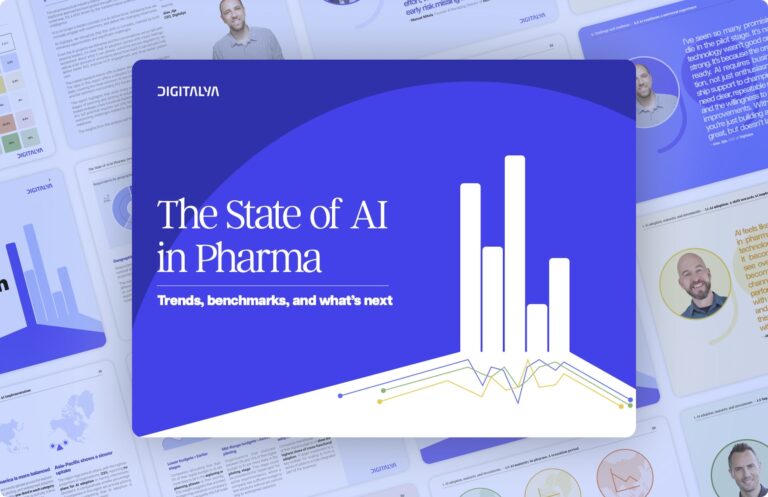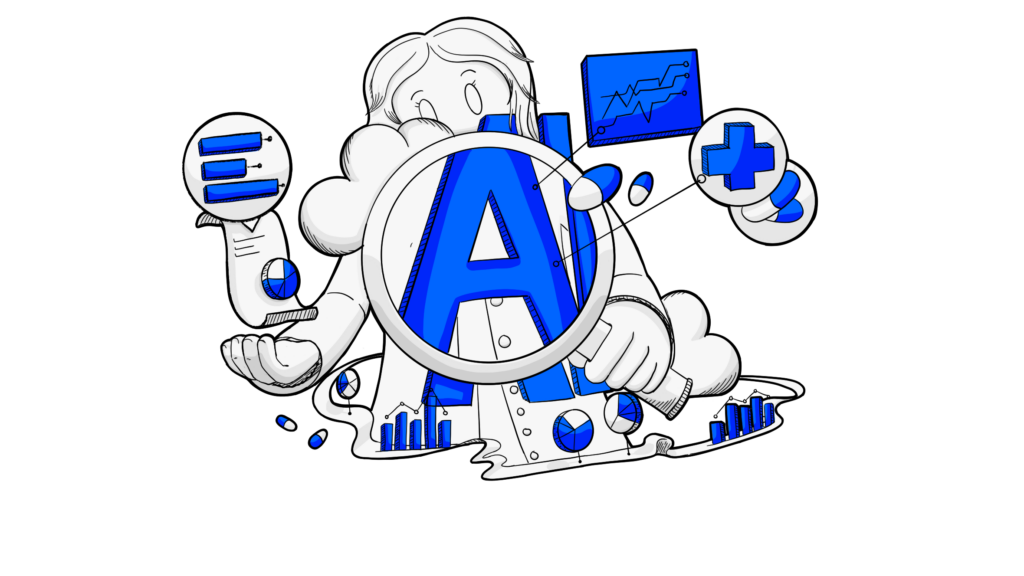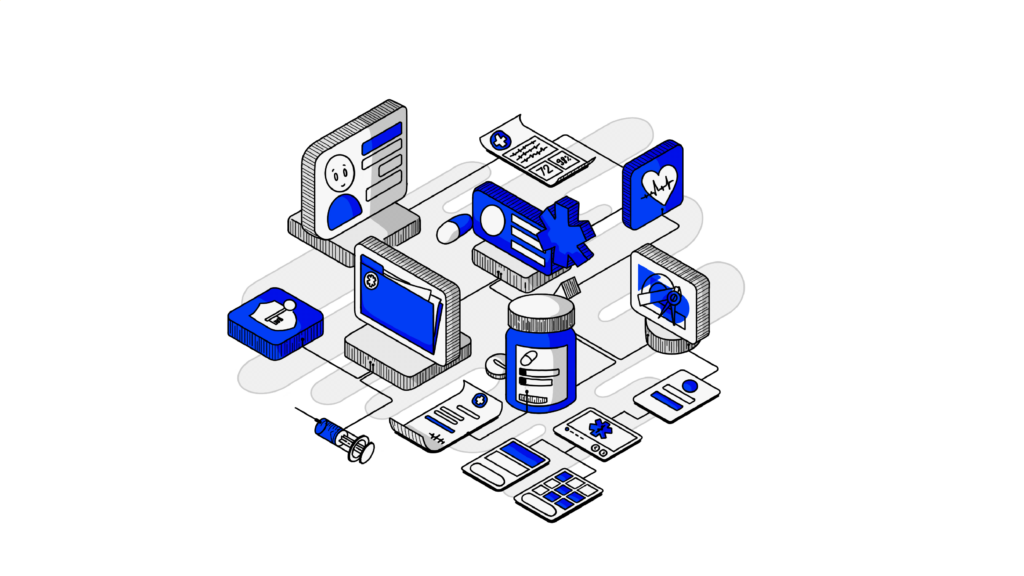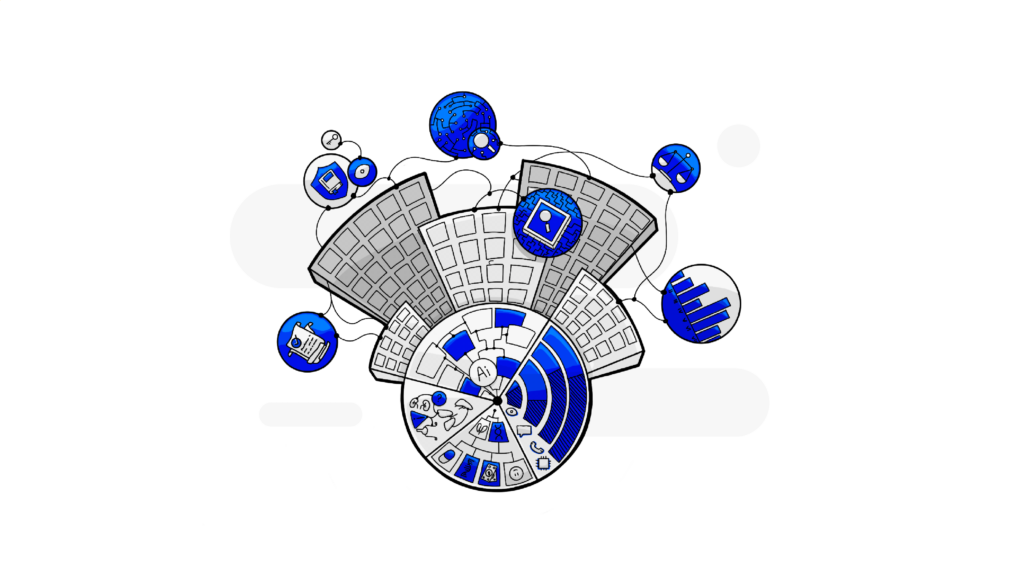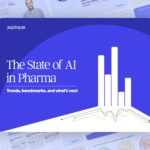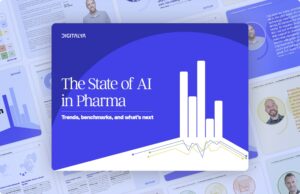1. Introduction
Integrating GenAI into HCP engagement strategies is not just a trend but a necessity. By harnessing the power of GenAI, pharma companies can ensure that their communications are not only relevant and timely but also resonate deeply with the needs and expectations of a healthcare professional.
1.1 The growing importance of personalized HCP engagement
Personalized engagement is crucial in an increasingly competitive and regulated environment. HCPs are bombarded with information from multiple sources, and cutting through the noise requires a deep understanding of their individual preferences and behaviors.
Personalized engagement ensures that the right message reaches the right healthcare professional and fosters trust and credibility, which are essential in influencing prescribing behavior and clinical decisions.
1.2 Why GenAI is a game changer
Generative AI (GenAI) has emerged as a powerful tool with the potential to revolutionize various industries, including pharmaceutical marketing. Its ability to generate human-quality text, images, and other creative content offers significant advantages for personalized HCP engagement.

2. Understanding GenAI
Generative AI is a type of artificial intelligence that can generate new content, such as text, images, audio, or code, based on patterns it learns from existing data. It’s essentially a tool that can create new things that are similar to what it has been trained on.
Here are some key concepts in GenAI:
- Training data — the data that GenAI is fed to learn from. This data can be text, images, audio, or other forms of media.
- Model architecture — the underlying structure of the GenAI system, which determines how it processes and generates content.
- Generative process — the process by which GenAI creates new content based on the patterns it has learned from the training data.
How does GenAI work?
- Training — the GenAI model is fed a large amount of training data. It learns to identify patterns, relationships, and structures within the data.
- Generation — once trained, the model can be prompted to generate new content. It uses its understanding of the patterns it learned to create something new that is similar in style or content to the training data.
For pharma marketing, this means GenAI can be used to generate personalized communication for HCPs, providing valuable, data-driven insights and enabling more meaningful interactions.
2.1 Key differences between traditional AI and GenAI
Unlike traditional AI, which relies on predefined rules, GenAI leverages advanced machine learning models — particularly large language models — to understand, generate, and personalize content in a highly sophisticated manner.
Creating human-like, contextually relevant content and interactions at scale makes GenAI a game changer for personalized HCP engagement. Here are some key distinctions:
- Predefined vs. Adaptive — traditional AI operated based on predefined rules, making decisions within a narrow scope. GenAI on the other hand, adapts and learns from vast amounts of data, enabling it to dynamically generate new, original content.
- Task-specific vs. Multi-purpose — traditional AI solutions are often designed to perform specific tasks — like detecting patterns in data or making predictions. GenAI models are more versatile and capable of generating a wide range of content, including text, reports, images, and more, all tailored to specific needs.
- Static responses vs. Context-aware responses — traditional AI systems typically provide static responses based on predefined data inputs. GenAI, however, generates responses based on the context of the interaction, making the communication feel more natural and relevant.
2.3 Applications of GenAI in healthcare
GenAI is particularly transformative in the healthcare and pharma industries, where it can support a wide range of applications, including:
- Medical writing and content creation — GenAI can automate the creation of detailed reports, medical summaries, and scientific literature, reducing the time and cost associated with manually generating these documents.
- Personalized HCP engagement — with GenAI, pharmaceutical companies can generate personalized content for healthcare professionals based on their individual preferences, specialties, and patient demographics. This allows for more meaningful and relevant interactions.
- Real-time question-answering — GenAI models can assist HCPs in real time by answering their queries about new drug therapies, clinical trial data, or treatment protocols with evidence-based responses that are tailored to their needs.
- Drug development and research — GenAI is also being used in drug discovery. It can analyze vast amounts of biomedical data, generate hypotheses for new therapies, or predict how certain compounds might interact with biological systems.

3. Benefits of using GenAI for personalized HCP engagement
To leverage GenAI means to enhance communication with HCPs in ways that are more relevant, efficient, and meaningful. Let’s discuss some key benefits of using GenAI for personalized HCP engagement.
3.1. Improved HCP satisfaction and loyalty
GenAI can play a crucial role in improving HCP satisfaction and loyalty. By providing tailored experiences that meet their specific needs and preferences, GenAI can help pharmaceutical companies build stronger relationships and drive positive business outcomes.
- Personalized content — GenAI can create highly customized content that resonates with individual HCPs. This includes personalized emails, newsletters, educational materials, and marketing collateral. By addressing their unique needs and interests, GenAI can make HCPs feel valued and appreciated.
- Enhanced relevance — GenAI can deliver relevant information at the right time, ensuring that HCPs are not bombarded with irrelevant content. This can save them time and effort, leading to increased satisfaction.
- Improved relationships —personalized engagement can foster stronger relationships between pharmaceutical companies and HCPs. When HCPs feel valued and understood, they are more likely to be loyal to the companies they work with.
- Reduced cognitive load — by providing relevant information in a timely and personalized manner, GenAI can reduce the cognitive load on HCPs. This can help them make better decisions and improve their overall job satisfaction.
- Increased trust — personalized engagement can help build trust between pharma companies and HCPs. When HCPs trust a company, they are more likely to be loyal to its products and services.
Generative AI allows pharma companies to build tailored engagement strategies, resulting in more informed, responsive, and satisfied HCPs.
3.2 Enhanced data-driven decision-making
By analyzing vast datasets and generating actionable insights, GenAI helps HCPs access the right information at the right time, ultimately improving patient outcomes and making medical resource use more efficient.
- Valuable insights — GenAI can analyze HCP interactions and sentiment to extract valuable insights into their preferences, needs, and pain points. This information can be used to inform marketing strategies and product development.
- Data-driven strategies — by leveraging these insights, pharma companies can develop a more targeted and effective marketing strategy. This can help them allocate resources more efficiently and maximize their ROI.
- Optimized resource allocation — Generative AI can identify high-value HCPs based on their engagement levels, prescribing habits, and other relevant factors. This information can be used to optimize resource allocation and focus on the HCPs who are most likely to drive business growth.
- Predictive analytics — GenAI can be used to forecast HCP behavior and preferences, enabling companies to anticipate future trends and make proactive decisions.
- Improved decision quality — by providing data-driven insights and recommendations, GenAI can help companies make more informed and effective decisions.
3.3 Increased efficiency and productivity
Traditionally, personalizing HCP engagement would require significant manpower, with large teams of medical science liaisons (MSLs) and sales representatives working to tailor communications.
GenAI reduces the need for such extensive human resources by automating the content generation process, freeing up time for other high-impact activities like relationship-building or strategy planning. The cost savings can be substantial, especially for companies engaging with a global HCP audience.
Generative AI also accelerates content creation, reducing the time it takes to generate personalized messages, reports, or educational materials. This ensures HCPs receive timely information, improving responsiveness and decision-making.
3.4 Tailored content and recommendations
Leveraging advanced AI models can enhance communication with HCPs in more relevant, efficient, and meaningful ways.
- Personalized content — GenAI can create highly customized content that resonates with individual HCPs, addressing their specific needs and interests. This can include customized emails, newsletters, educational materials, and marketing collateral.
- Recommendation engines — GenAI can be used to recommend relevant products, services, or resources to HCPs based on their interests and past behavior. This can help them discover new opportunities and improve their professional development.
- Real-time recommendations — these can be provided based on HCP’s current activities and context. For example, if an HCP searches for information on a particular disease, GenAI could recommend relevant resources or products.
- Improved engagement — by delivering tailored content and recommendations, GenAI can improve HCP engagement and drive product adoption.
- Enhanced user experience — personalized experiences can enhance the user experience for HCPs, making them more likely to return to company portals and resources.
3.5 Increased ROI for pharma companies
By automating and personalizing interactions, GenAI reduces the cost of engagement while improving its effectiveness. Instead of relying on traditional, resource-heavy marketing methods, GenAI enables pharmaceutical companies to target HCPs with personalized content that resonates with their specific needs, leading to higher engagement and prescription rates. This streamlined, data-driven approach ensures that marketing efforts are more efficient, resulting in lower costs and higher impact.
In addition, resource allocation is optimized, and decisions can be made faster and more informed. GenAI can analyze large datasets in real-time and identify high-value opportunities, such as key HCPs or emerging market trends, enabling companies to focus their efforts where they will see the greatest returns.
This strategic targeting, combined with GenAI’s ability to reduce the sales cycle and shorten time-to-market for new products, accelerates revenue generation and maximizes the value of marketing investments.
Moreover, GenAI lowers operational costs by automating routine tasks such as compliance management and content creation. This reduces the cost of regulatory compliance and allows pharma companies to operate more efficiently, leading to higher productivity and improved financial performance.
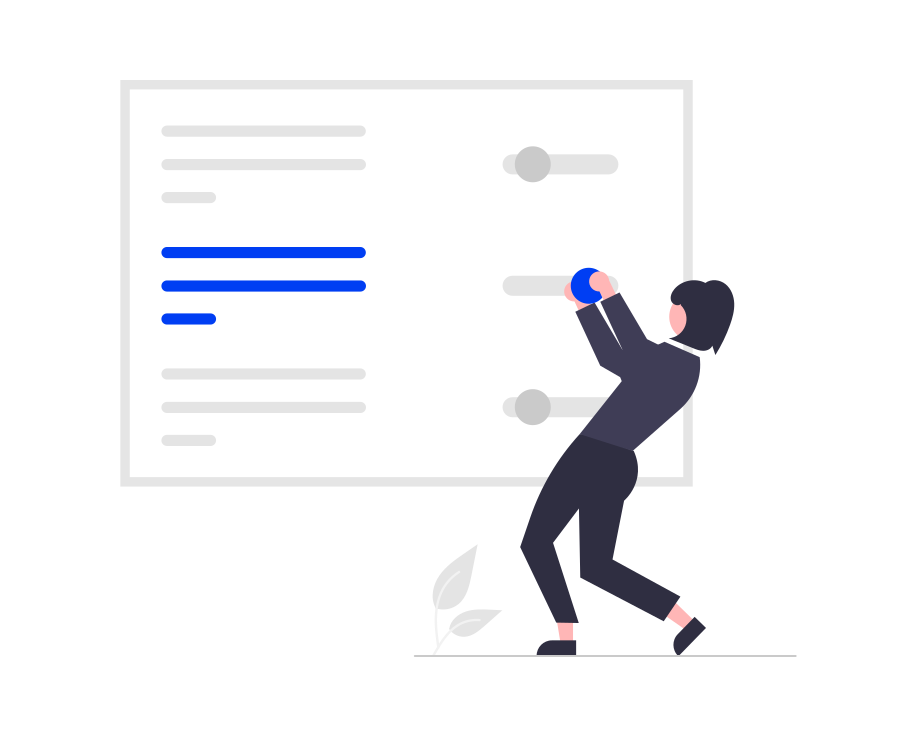
4. Specific use cases of GenAI in HCP engagement
GenerativeAI has immense potential to transform how pharmaceutical companies interact with healthcare professionals, making these interactions more efficient, personalized, and data-driven.
4.1 Personalized content generation
This tailored approach goes beyond generic materials to deliver relevant and anticipated content, enhancing engagement and driving conversions.
| Tailored marketing materials | Customized content delivery | Content optimization |
| Personalized emails — beyond simple greetings, GenAI can create emails that reference specific HCP interests, recent interactions, or even data points from their practice. This level of communication fosters a sense of personal attention. | Real-time recommendations — GenAI can analyze HCPs’ online behavior to provide timely recommendations. For instance, if an HCP searches for information on a specific disease, GenAI could suggest relevant clinical trials, research papers, or product information. | A/B testing — GenAI can help companies with different variations identify the most effective messaging and design elements. This data-driven approach ensures that content is continually refined for maximum impact. |
| Targeted newsletters — leveraging HCP references and behaviors, GenAI can curate newsletters highlighting content relevant to their specialities or challenges. This ensures that HCPs aren’t bombarded with irrelevant information. | Language optimization — for companies operating in multiple markets, GenAI can ensure that content is not only translated but also culturally adapted. This helps to avoid misunderstandings and improve engagement. | Language optimization — for companies operating in multiple markets, GenAI can ensure that content is not only translated but also culturally adapted. This helps to avoid misunderstandings and improve engagement. |
| Personalized educational materials — GenAI can analyze HCP knowledge gaps and preferences to generate whitepapers, case studies, or presentations that address their specific needs. This can be particularly valuable for continuing medical education (CME) or product training. | Personalized landing pages — GenAI can create landing pages that are tailored to individual HCPs, featuring content and calls to action that align with their specific interests. | SEO optimization — GenAI can assist in optimizing content for search engines, ensuring that HCPs can easily find relevant information. This can iprove brand visibility and drive organic traffic to company websites. |
4.2 Natural language processing (NLP)
Natural Language Processing (NLP) is a subset of artificial intelligence that focuses on enabling machines to understand, interpret, and generate human language. In the context of HCP engagement, NLP can play a transformative role in enhancing how pharma companies communicate with and support HCPs.
Using NLP, companies can analyze large volumes of unstructured text data, automate routine tasks, and deliver personalized and contextually relevant information, ultimately driving more meaningful interactions.
- Sentiment analysis and feedback interpretation
Pharma companies collect significant feedback from HCPs through surveys, emails, and other communications. NLP-powered sentiment analysis helps companies analyze this feedback in real-time, identifying the tone and emotions expressed by HCPs. This allows companies to gauge satisfaction levels quickly, identify potential concerns, and respond proactively.
For example, NLP can automatically analyze the sentiment behind comments on a newly launched drug, helping pharma companies understand how HCPs perceive its efficacy, side effects, or overall value. Based on this analysis, targeted follow-up actions can be initiated.
- Intelligent chatbots and virtual assistants
NLP enables the development of intelligent chatbots and virtual assistants that can engage with HCPs in real-time. These chatbots use natural language understanding to answer complex medical queries, provide information about drug indications, or offer guidance on treatment protocols.
By processing and understanding HCPs’ questions and requests, NLP-powered assistants can deliver accurate and contextually relevant responses instantly, improving engagement and reducing the workload on the sales and medical science liaison teams.
- Content summarization and medical literature
NLP can process and summarize vast amounts of medical literature, making it easier for HCPs to stay updated on the latest research, clinical trials, and treatment guidelines.
For example, NLP can condense lengthy clinical trial reports into concise summaries highlighting the most critical data points relevant to an HCP’s specialty.
- Personalized content generation
With NLP, pharma companies can analyze HCPs’ preferences and behavior to generate personalized content. NLP tools can interpret data from previous interactions, medical interests, and clinical practice areas to produce tailored communications.
- Automated meeting and interaction transcripts
During meetings between HCPs and pharma representatives, NLP can transcribe conversations, automatically capturing key discussion points. These transcripts can be analyzed to extract insights, track follow-up actions, and generate personalized content or recommendations based on the HCPs’ expressed interests.
4.3 Predictive analytics
Predictive analytics is a subfield of data mining that uses statistical models and machine learning techniques to predict future outcomes based on historical data. In the context of HCP engagement, predictive analytics can be used to forecast HCP behavior, identify high-value HCPs, and optimize resource allocation.
- Forecasting HCP behavior
Predictive analytics can be used to forecast HCP behavior, such as prescribing habits, attendance at events, and engagement with marketing materials. This information can be used to anticipate future trends and tailor engagement strategies accordingly.
For example, if an HCP has a history of engaging with oncology-related data, predictive models can anticipate when they will be interested in learning about new cancer treatments, clinical trials, or FDA approvals. This enables pharma companies to deliver timely, proactive content.
- Identifying high-value HCPs
Pharma companies can identify which HCPs are most likely to be interested in specific products, treatments, or clinical data. By analyzing factors such as an HCP’s prescribing behavior, specialty, patient population, and past interactions, predictive models can rank HCPs based on their potential value to the company. This allows marketing and sales teams to focus their efforts on the HCPs who are most likely to engage.
If predictive analytics identifies a group of HCPs who have shown interest in, for example, cardiology-related treatments, companies can prioritize them for new cardiovascular product updates or educational content.
- Optimizing resource allocation
Predictive analytics can help companies optimize resource allocation by identifying the most effective marketing channels and tactics for reaching different segments of HCPs.
For instance, the data may reveal that specific HCPs respond more to digital channels like emails or webinars, while others prefer face-to-face interactions with sales representatives. Understanding these preferences can help tailor engagement strategies to maximize ROI and improve the effectiveness of the outreach efforts.
- Churn prediction
By analyzing engagement patterns, content consumption, and prescription trends, predictive models can detect when an HCP is at risk of reducing or stopping their interaction with the company. This allows pharma companies to take proactive measures to re-engage these HCPs, such as offering personalized content, exclusive training opportunities, or more frequent follow-ups.
- Demand forecasting
Predictive analytics can be used to forecast demand for products and services, helping companies optimize their inventory and production planning.
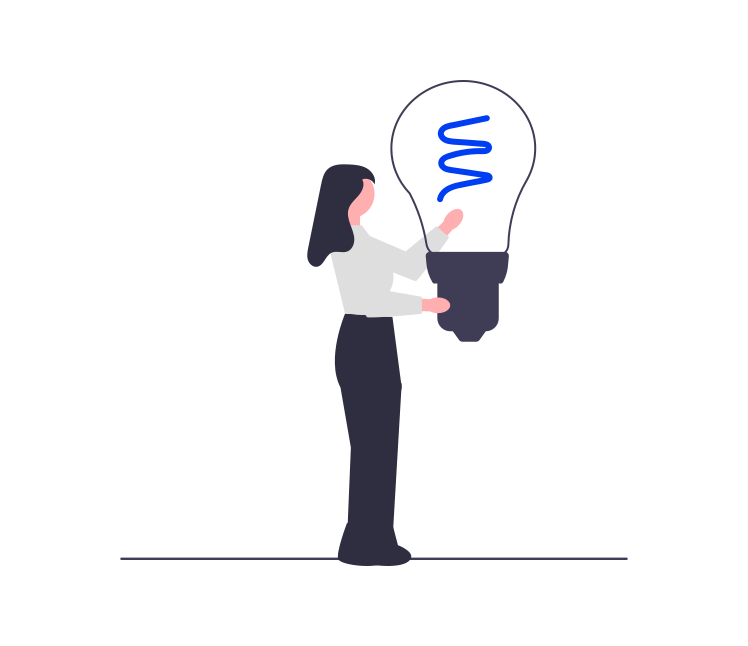
5. Challenges and considerations
While Generative AI presents numerous opportunities to revolutionize HCP engagement, pharmaceutical companies must also address significant challenges and considerations. These hurdles are critical to ensuring that GenAI implementations are effective, ethical, and compliant with industry regulations.
- Data privacy and compliance
Pharma companies handle sensitive data related to both healthcare professionals and patients. Using GenAI for personalized HCP engagement requires processing large amounts of data, which raises concerns about privacy and compliance with healthcare regulations such as HIPAA in the U.S. and GDPR in Europe.
- Ethical use of AI and bias in models
AI models can inadvertently perpetuate bias, which may result in unfair or unethical outcomes in HCP engagement. For instance, if the data used to train GenAI models reflects historical biases in healthcare or medicine, the resulting outputs may skew toward certain specialties or demographic groups, excluding others.
- Quality and accuracy of generated content
One of the primary concerns with GenAI is the accuracy and reliability of the content it generates. In healthcare, inaccurate or misleading information can have serious consequences, impacting HCP decision-making and patient outcomes.
- Integration with existing systems
For GenAI to be effective, it must seamlessly integrate with a pharmaceutical company’s existing customer relationship management (CRM) platforms, marketing systems, and content management tools. Poor integration can lead to fragmented HCP data, inconsistent communications, and a suboptimal user experience.
- Managing HCP trust and expectations
HCPs are accustomed to receiving evidence-based, peer-reviewed information and may be wary of AI-generated content. Building trust with HCPs requires clear communication about how GenAI is used and ensuring that AI-generated content meets high medical accuracy and relevance standards.
Companies must be transparent about when and how GenAI is employed in content creation and ensure that AI-driven communications are presented alongside human expert input.
6. Conclusion
Generative AI (GenAI) has the potential to revolutionize HCP engagement by providing highly personalized, data-driven experiences that resonate with HCPs on a deeper level. GenAI offers pharmaceutical companies a wide range of benefits, from personalized content generation to predictive analytics.
While challenges and considerations exist to address, such as data privacy, ethical implications, and model accuracy, the potential rewards of using GenaI for personalized HCP engagement are significant.
By leveraging GenAI’s capabilities, pharmaceutical companies can strengthen relationships with HCPs, improve customer satisfaction, drive product adoption, and achieve sustainable business growth.
As Gen AI continues to evolve and improve, we expect to see even more innovative and creative applications in HCP engagement.
By embracing this technology and addressing the associated challenges, pharmaceutical companies can position themselves for success in the future of healthcare marketing.

